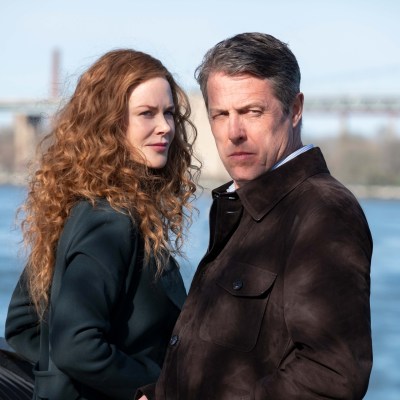Industry Review: HBO Finance Drama is Softer-Hearted Than You’d Expect
City traders are the enemy? No, says smart new HBO/BBC workplace drama Industry, these ambitious kids are people like the rest of us…

In 2020, it’s hard to imagine a workplace that engenders less sympathy than the trading floor of a City bank. A puppy-kicking farm, perhaps? The Trump Campaign? Being asked to experience fellow-feeling for the people who choose to work in the gurgling bastard tank of corporate finance is a tall order. We all recognise City traders as the bad guys – to a one, rapacious, conscience-free, Patrick Bateman-alike monsters who’d sell their grandmother a bundle of toxic assets if it turned them a profit.
A viewer could be forgiven then, for approaching a drama about a cohort of graduate interns at a top London investment bank in a spirit of mean-hearted glee. What knobbers has the show lined up for us to loathe? Will it be all burning £50 notes in front of homeless people, doing bumps off the face of a Philippe Patek and high-fiving over sex workers’ backs, or just mostly that? We’ve seen The Apprentice. We know what enjoyable rage a pocket square and an Etonian accent can inspire.
Well, forget about using Industry as fuel for your daily Two Minutes Hate. This show is no Succession-like zoo of the morally corrupt. The ambitious young people killing themselves to land these coveted positions, it turns out, are human beings like the rest of us. Clever. Driven. Vulnerable. And – against your every instinct – easy to root for.
That’s down to power, or a lack thereof. These kids (some Oxbridge graduates and Old Etonians, some bright sparks from elsewhere on the the class and geographical map) may have been on top of the pile at university, but at fictional setting Pierpoint Bank, they’re on the bottom rung. That makes them the comparative underdogs – a bundle of fresh-faced young potential you start off wanting to see running for the hills, and then quickly shift to wanting to see absolutely bossing it.
Quite how they absolutely boss it is a total mystery. Unless you’re already versed in the ways of the trading desk, none of Industry’s work scenes will make the slimmest slice of sense. Precisely no allowances are made to get the finance-thick viewer up to speed, which could be considered intellectually flattering, but is more likely down to the fact that it’s simply impossible to explain to civilians. You’ll have to watch the trading scenes like a dog watching a human conversation: Gibberish gibberish STRESSED VOICE gibberish gibberish HAPPY VOICE gibberish gibberish WALK?
Luckily for the financially challenged among us, there’s loads of sex and drug-taking in between the misbooked non-farm payroll errors, and that’s all very easy to understand.
Episode one is directed by Lena Dunham – whose Girls was clearly an influence on the tone. There’s mild satire amid the life-or-death trade deals and hedonist shagging, all built on a foundation of non-judgement at these young people who’ve chosen a career with rich financial reward but that places them under geological pressure.
One reason for this show’s empathetic, if not quite apologist, approach to high finance and the young people who want to work there, is its autobiographical inspiration. Screenwriters Konrad Kay and Mickey Down met at Oxford University and worked in London investment banking after graduation. Down lasted a year and Kay lasted over three, but both emerged with a particular perspective on the rarefied environment and the stories it could tell.
It’s an environment with striking and – as the writers tell it – natural diversity in ethnicity, nationality, sexuality, class and gender. Investment banks like to call themselves meritocracies. Be the best and earn your place. Industry prods usefully at that idea, exploring how far it does and doesn’t apply. It’s a naturalistic portrayal of the modern, competitive workplace with convincing texture. Even if you’ve never stepped foot on a trading floor, you’ve probably shared a Tube carriage or a pub smoking area with these people. They feel real.
Much of that is down to the cast of mostly newcomers, led capably by Myha’la Herrold as new American recruit Harper. Our main PoV character, she’s an outsider with some intrigue in her past, and an engaging, revealing relationship with her older mentor Eric (Ken Leung), the immigrant Roger Sterling of the piece.
Marisa Abela does terrific work as Yasmin, who lives rent-free in Notting Hill in her one of her non-dom parents’ London properties and therefore has a great deal of ground to make up in the goodwill stakes. Yasmin is precisely the kind of character whose ‘How I Spend It’ money diary would inspire rage on Twitter, but after four episodes, I like her and – thanks to the writers and Abela – might even understand her.
Harry Lawtey plays Robert, “a whole snack” according to Harper and Yasmin. Even he, the Prince of Canary Wharf, has vulnerabilities in the form of his cheap suits and estuary vowels. David Jonsson plays Gus, who’s written his life plan on the inside cover of a copy of Thackeray’s Vanity Fair. Informer’s Nabhaan Rizwan plays Hari, who’s desperate to seem keen and buys in to the whole 24-hr desk, sleep is for wimps toxicity. Rounding out the cast in supporting roles are Humans’ Will Tudor and Skins’ Freya Mavor. It’s a good ensemble, think Skins meets This Life.
Get past the technical language in the first episode (engage your dog-brain), and what’s left is an appealing character drama about timeless themes – youth, ambition, sex, relationships and status. It wins you over. By the end of episode four, you might even start thinking that… greed is good?
Industry starts on HBO on Monday the 9th and on BBC Two on Tuesday the 10th of November.


